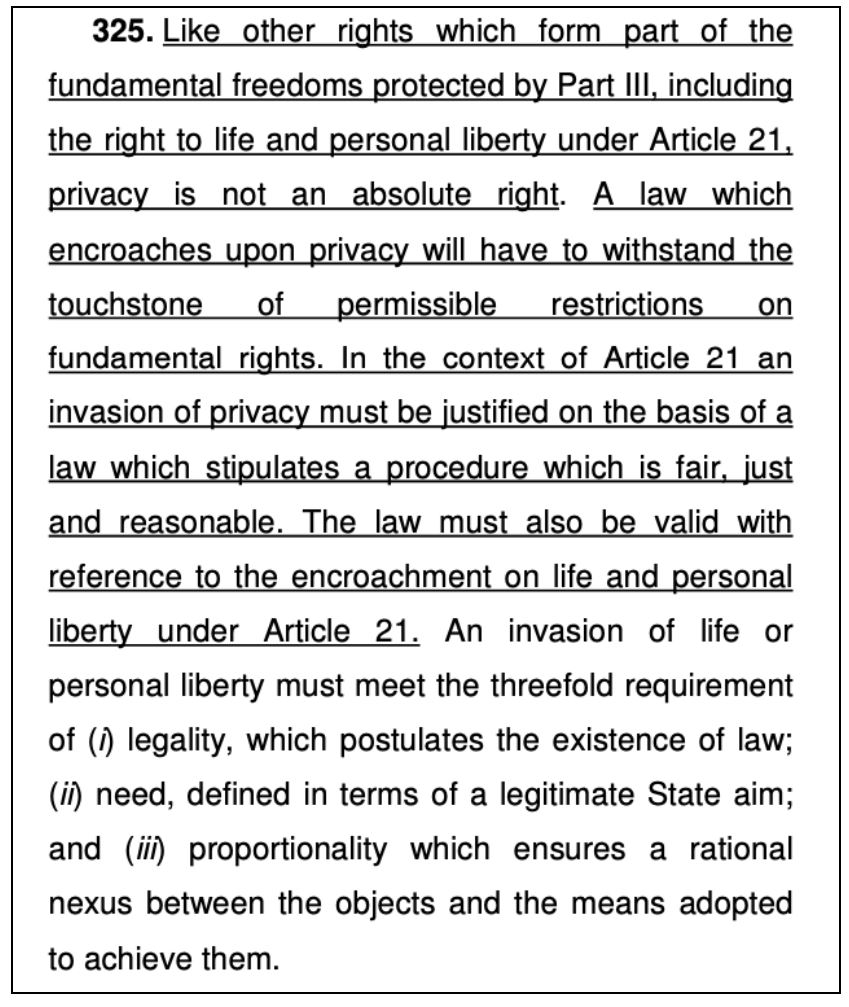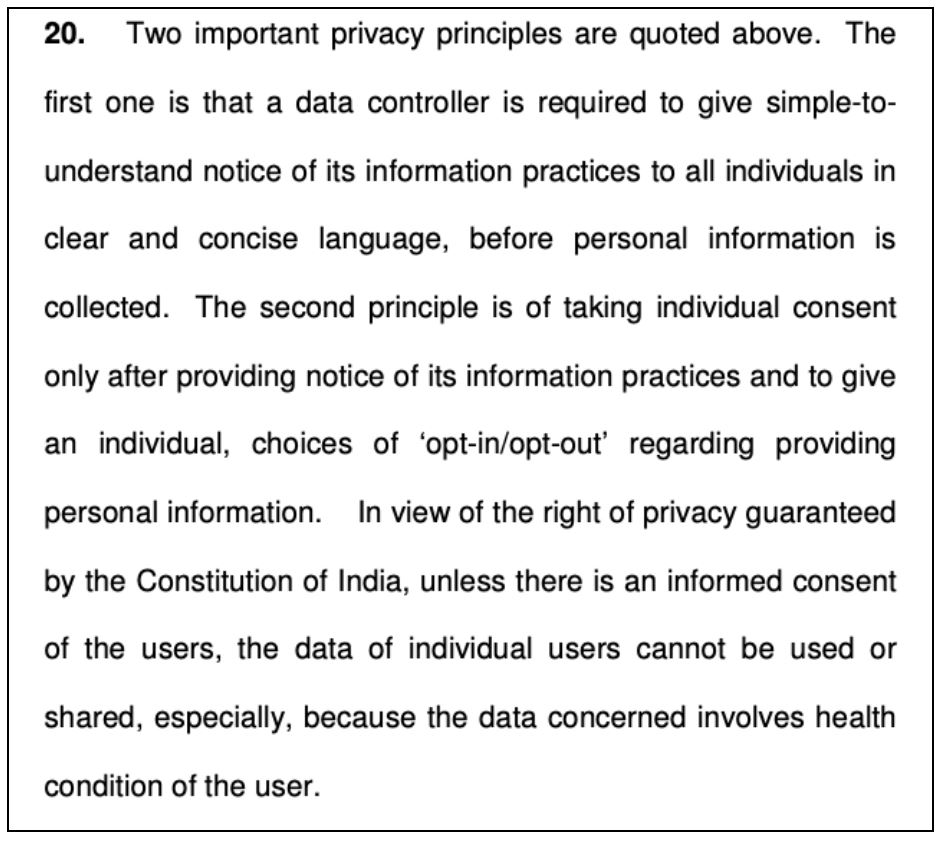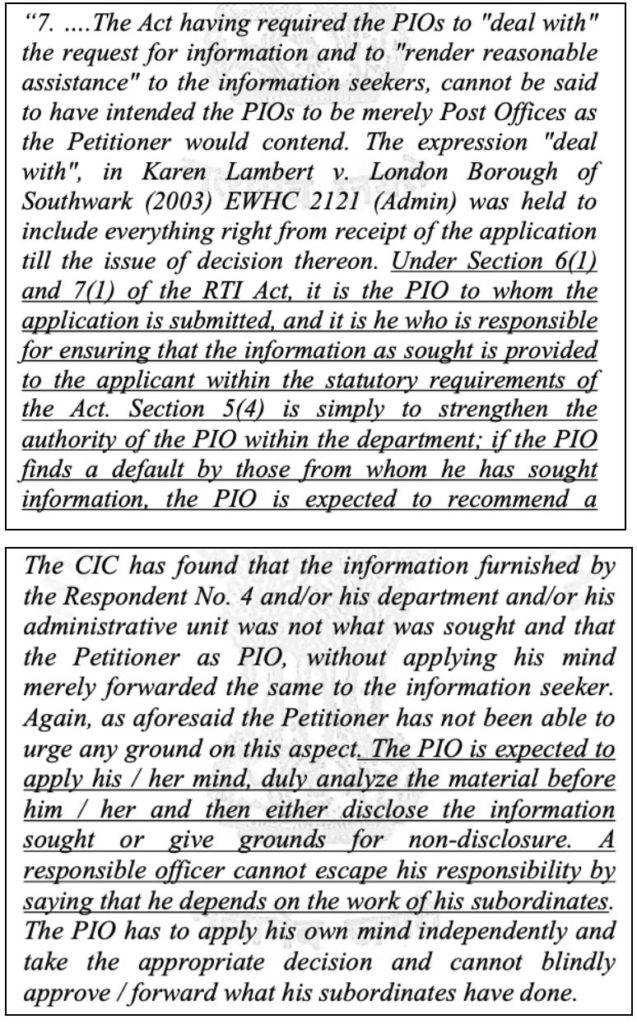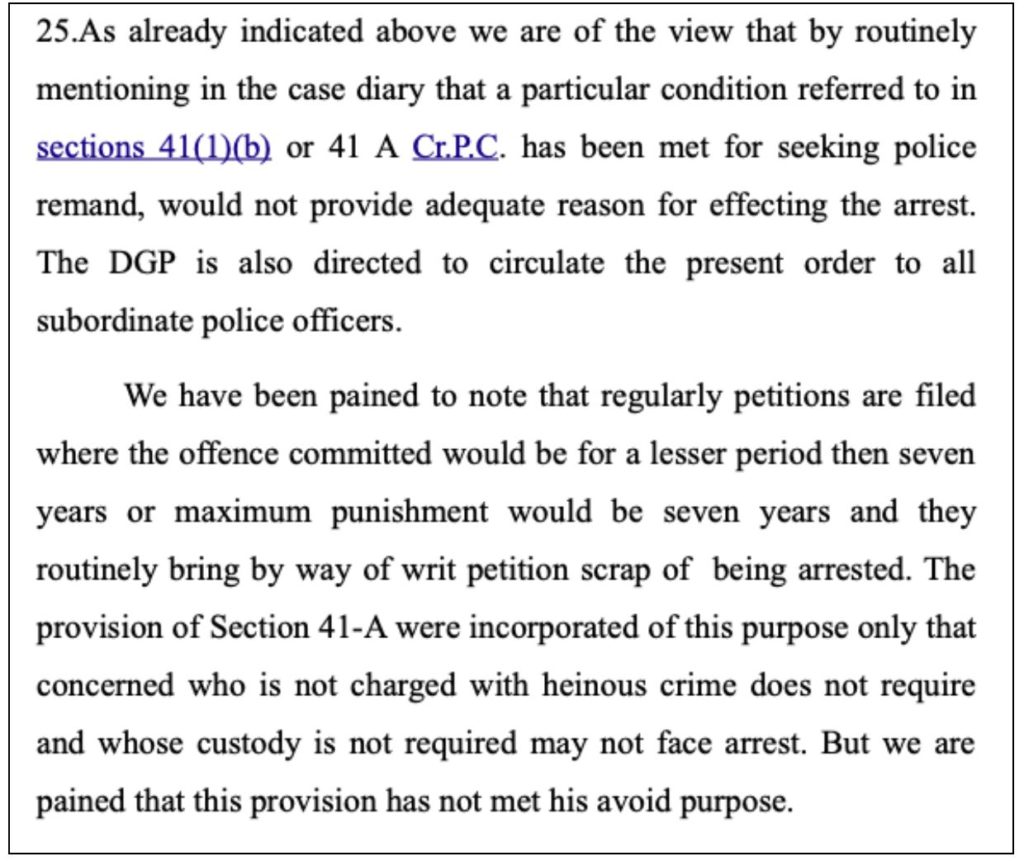Karnataka HC: Information privacy is a facet of the right to privacy
In the case Anivar A Aravind vs. Ministry of Home Affairs and others, the Karnataka high court held that information privacy is a facet of the right to privacy. The bench of Chief Justices AS Oka and Justice Vishwajith Shetty passed an interim judgement restraining the Central Government and the National Informatics Centre (NIC) from sharing the response data given by users in the ‘Aarogya Setu’ app with other government departments and agencies, without obtaining informed consent of the users.
The court was hearing a writ petition concerning the ‘Aarogya Setu’ application introduced by the Government of India after the nationwide lockdown was announced on 24 March 2020. The NIC launched the ‘Aarogya Setu’ app on 02 April 2020 which is stated to have been downloaded by more than one hundred million users. On 11 May 2020, an order was issued by the Chairperson, Empowered Group on Technology and Data Management in the name of ‘the Aarogya Setu Data Access and Knowledge Sharing Protocol, 2020’. One of the issues involved is whether the Government of India has a right to use the personal data of ‘Aarogya Setu’ app users and whether it can transfer/share the data without obtaining the informed consent of the users.
At this stage, the high court was not deciding the main issues raised in the petition. The judgement records only prima facie and tentative findings for the purposes of considering the prayer for interim relief. The judgement clarifies that no citizen can be denied the benefits of any Government services or the services rendered by any of the agencies or instrumentalities of the State solely on the ground that he has not downloaded and installed the ‘Aarogya Setu’ app. With respect to the right of privacy, the judgement observes that:

The judgement commends the Union Government the need to examine and put into place a robust regime for data protection. The users of the app are not even informed about the said protocol as provided in the ‘Aarogya Setu’ Data Access and Knowledge Sharing Protocol, 2020 because there is no reference to the said protocol in the terms of use and Privacy Policy available on the app. Therefore, the judgement directs that the use and retention of information and data shall remain confined to what is provided in the privacy policy which is available on the ‘Aarogya Setu’ app.

Delhi High Court: RTI Act as framed casts obligation upon the PIO to ensure that the provisions of the Act are fully complied
In the case Rakesh Kumar Gupta (erstwhile CPIO) vs. Central Information Commission, the high court held that Central Public Information Officers(CPIOs) have a solemn responsibility to deal with requests for information and `render reasonable assistance’ to the persons seeking information in a fair, non-arbitrary and truthful manner.
The court was hearing an appeal filed by two officers, who were working with the Union Bank of India as CPIOs, challenging the order dated 14 December 2020, passed by the Information Commissioner of the Central Information Commission (CIC), which imposed penalties amounting to Rs. 10,000/- upon the Petitioners.
The background of this case is that an RTI application was filed on 09 January 2018, by the applicant who was a Chief Manager at the Union Bank of India seeking details of the Board approval along with justification. In reply to the said RTI application, the office of the CPIO informed the Applicant that a copy of the board note, being an internal document of commercial confidence and hence exempted from disclosure, cannot be furnished. The applicant thereafter filed an appeal with the Appellate Authority under the RTI Act. The said Appellate Authority also disposed of the appeal stating that a copy of the board approval was exempted from being disclosed under Section 8(1)(d) of the RTI Act.
The applicant, thereafter, filed a second appeal before the Information Commissioner, CIC. The CIC, through an order dated 29 January 2020, found that there was no reason why complete information was not provided to the applicant and held that the responses provided were rather incomplete and evasive. A show-cause notice was then issued to the CPIOs of the bank as to why a penalty should not be imposed on them for not providing complete information to the applicant.
After the said show cause notice was issued, the petitioners took a completely different stand and stated that the information sought could not be found on the record. In view of this complete change in stand by the petitioners, the CIC via an order dated 14 December 2020, imposed a penalty of Rs.10,000/- each, on both the CPIOs.
The CIC came to the conclusion that there was variance in the replies given by the CPIOs and despite a lapse of more than two and a half years, the information has not been provided. Thus, it concluded that there were mala fides on behalf of the CPIOs resulting in the imposition of a penalty against them under section 20 of the RTI Act.
A single Judge bench of Justice Pratibha M. Singh highlighted that the CPIO, being the custodian of information or documents sought for, is primarily responsible under the scheme of the RTI Act to supply the information, and in cases of default, the penal action is to be invoked against the CPIO only.
The judgement observes that the CPIOs/PIOs are not merely ‘post offices’ and have a crucial responsibility in facilitating the purpose of the RTI Act. The court has held that:

Thus, information seekers are to be furnished what they ask for and are not to be driven away through filibustering tactics and it is to ensure a culture of information disclosure that penalty provisions have been provided in the RTI Act. A PIO cannot escape his obligations and duties by stating that persons appointed under him had failed to collect documents and information. The RTI Act as framed casts an obligation upon the PIO to ensure that the provisions of the Act fully comply. Even otherwise, the settled position in law is that an officer entrusted with the duty is not to act mechanically.
With respect to the duty of CPIOs, the judgement describes the following principles:
- CPIO/PIOs cannot withhold information without reasonable cause.
- A CPIO/PIO cannot be held responsible if they have genuinely rejected the information sought on valid grounds permissible under the Act. A mere difference of opinion on the part of CIC cannot lead to an imposition of penalty under section 20 of the RTI Act.
- Government departments ought not to be permitted to evade disclosure of information. Diligence has to be exercised by the said departments, by conducting a thorough search and enquiry, before concluding that the information is not available or traceable.
- Every effort should be made to locate information, and the fear of disciplinary action would work as a deterrent against the suppression of information for vested interests.
- CPIOs/PIOs cannot function merely as “post offices” but instead are responsible to ensure that the information sought under the RTI Act is provided.
- A CPIO/PIO has to apply his/her mind, analyse the material, and then direct disclosure or give reasons for non-disclosure. The PIO cannot rely upon subordinate officers.
- The duty of compliance lies upon the CPIO/PIO. The exercise of power by the CPIO/PIO has to be with objectivity and seriousness. The CPIO/PIO cannot be casual in their approach.
- Information cannot be refused without reasonable cause.
Considering the overall facts, the court opined that the penalty imposed cannot be faulted. However, considering the fact that both the CPIOs has since retired from the service of the Bank, the penalty is reduced to Rs. 5,000/- each.
Calcutta HC: Basic tenets of Equality violated by not providing Reservation Benefits to Transgenders In ‘Joint CSIR-UGC NET’
In the case of Mx Sumana Pramanik vs. Union of India, a very pertinent question has been raised by the writ petitioner as regards a patent discrepancy in the eligibility criteria of the Joint CSIR-UGC NET examination with those of the UGC-NET Examination.
The high court observed that such discrimination relates to the eligibility criteria of the latter providing for transgenders to get the benefit of reservation and allied benefits, while those of the former, that is, the joint CSIR-UGC NET, excluding the transgender.
The bench of Justice Sabyasachi Bhattacharyya held that guidelines have already been laid down by the Supreme Court, including a direction on the Centre and the State Governments to take steps to treat members of the “third gender” as socially and educationally backward classes of citizens and extend all kinds of reservation in cases of admission in educational institutions and for public appointments.
The court opined that prima facie, such direction of the Supreme Court as well as the basic tenets of equality, enshrined in the Constitution, were violated by such exclusion. In conclusion, the court allowed the UGC some time to take appropriate instructions.
Allahabad HC: Lays down directions to ensure compliance of safeguards from arbitrary arrests
In the case of Vimal Kumar and others vs. State of UP and others, the high court made a significant observation regarding arbitrary arrests. The court directed the Police authorities to desist from making automatic/routine arrests, especially in dowry cases (498A IPC), and strictly comply with the pre-conditions laid down under Section 41A of CrPC.
Section 41A of CrPC provides that in all cases where the arrest of a person is not required under Section 41(1) (when police may arrest without warrant), the Police shall issue a notice directing the person against whom a reasonable complaint has been made, or credible information has been received, or a reasonable suspicion exists that he has committed a cognizable offence, to appear before him or at such other place as may be specified in the notice. It further states that where the accused complies and continues to comply with the notice, he shall not be arrested in respect of the offence referred to in the notice unless, for reasons to be recorded, the police officer is of the opinion that he ought to be arrested.

A Division bench comprising Justices Dr. Kaushal Jayendra Thaker and Gautam Chowdhary noted that despite this safeguard, in many cases the police is still routinely proceeding to arrest accused persons, even if they are involved in offences punishable with up to 7 years imprisonment.
In conclusion, the judgement gives the following directions:
- The State Governments to instruct its police officers not to automatically arrest when a case under Section 498-A IPC is registered but to satisfy themselves about the necessity for arrest under the parameters laid down above flowing from Section 41-A of CrPC.
- All police officers to be provided with a checklist containing specified sub-clauses under Section 41(1)(b)(ii) of CrPC.
- The police officer shall forward the checklist duly filled and furnish the reasons and materials which necessitated the arrest, while forwarding/producing the accused before the Magistrate for further detention.
- The Magistrate while authorising detention of the accused shall peruse the report furnished by the police officer in terms aforesaid and only after recording its satisfaction, the Magistrate will authorise detention.
Featured Image: Important observations by Courts


